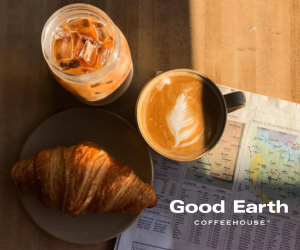Ikky Is The Beat Conductor Bridging A Cross-Cultural Divide
Fusing Punjabi music with pop and hip-hop, the Toronto producer is creating space for a new wave of emerging artists.
by Jonathan Crane
- Published on
Canadian producer Ikwinder “Ikky” Singh has been helping to solidify Toronto’s reputation as both a bonafide source of colossal hits within the world of Punjabi music and a bridge between Eastern and Western influences. Within the span of four years, the 21-year-old producer has crafted beats that fuse elements of hip-hop and pop with traditional Punjabi genres like Bhangra to create some monumental tracks that have raked in a combined total of more than one billion streams.
Last year, Singh partnered with Warner Music to launch his own imprint, 4N Records, with the aim of increasing the global profile of Punjabi music. “I wanted Punjabi people to relate with everybody else, and for everybody else to start relating with Punjabi music, I feel like we’ve got something here,” says Singh.
These accolades are the product of a lifetime of steady growth. The son of a musician father, Singh developed a strong commitment to Bhangra and Punjabi music within the first decade of his life. “I started out as a more religious singer, I used to do Bhangra as a dancer as well,” he says. “I started singing for Bhangra teams, which really got me into the more traditional groovy Bhangra vibes that I give out in my songs.”
At the age of six he started playing instruments, learning the harmonium and the sarangi — a bowed string instrument that he frequently showcases on his Instagram — through musicians in Toronto’s Punjab community and self-teaching. Around the age of 13 Singh began creating music digitally, and by 15 he was ghost-producing for other artists. These ghost productions started generating a buzz around Toronto, and Singh began networking deeper into the music industry.
Eventually, Singh connected with someone who knew the head of Jass Reocrds, a label that had just released a major hit from Punjabi singer Rajvir Jawanda. A meeting was arranged for Singh to meet Jawanda at a studio, however Jawanda never appeared. Instead, the label asked Singh to produce a beat for a new artist they were working with, Gurnam Bhullar. “They told me they were going to send me vocals the same night and that I had to show them the song by tomorrow,” says Singh.
At this stage in his career, the pressure to turn over a commercial-grade finished instrumental within one night was something that he had grown adept at handling. “I was already ghost producing for so many people in Toronto making a lot of music in a very short period of time, so I got very very used to cranking out music in an hour or two,” he says.
The executives liked it, and it was eventually released in January 2018 under the name “Diamond.” “A couple months later the song comes out and all of a sudden I’m a hit, Gurnam Bhullar’s a hit, the writer’s a hit, the video director, it was a song that just blew all of our careers up,” says Singh.
The success of “Diamond” led other major names within the Bhangra genre, like Amrit Maan and Garry Sandhu, to enlist Singh for production. “At that time I wasn’t comfortable with just one hit, I wanted to make sure I knew I could really do this,” says Singh.
In the early period of commercial success Singh preferred to keep a low-key social profile. With the launch of 4N Records, however, Singh began putting his name on tracks. “For me the next step was putting myself out there and doing things the way I wanted instead of getting hired and being told how to do it,” says Singh.
One of Singh’s goals with 4N Records was also to introduce a business model that’s conducive to artistic growth. “I wanted to represent the music and also make sure everybody is taken care of, make sure everybody is getting recognized, make sure everyone’s getting paid, instead of getting screwed around the way we were, the way I was at least,” he says.
According to Singh, many labels that currently release Punjabi music lack a structure that sets artists up for success. “There’s not many labels operating outside of India, but the ones that do lack the royalty structure for artists, there’s no publishing to artists, it’s more so just: ‘we pay you a couple thousand dollars,’” he says. This, he says, can be discouraging for new artists, particularly if they don’t have a string of hits like he did. “For me, I feel like it’s a miracle that I kept going and being consistent,” he says.
Creating a cultural bridge also entails creating tracks that can resonate with both markets. While attempts to blend Punjabi and Western influences aren’t new, Singh believes there’s often been elements of either side that have been toned down, something he hopes to avoid in his own productions. “If I’m listening to rap, if I’m listening to Punjabi music, or latino music, I like the authentic part of each genre, not when you try to take certain elements out of it,” he says.
His recent single “Magical Love” and forthcoming collaboration with Tory Lanez and Diljit Dosanjh encapsulate this sentiment. “Magical Love” features vocals that Singh describes as traditional, authentic Punjabi from singer Lavi Tibbi, while the collaboration will showcase both artists in a way that’s true to their respective styles. “I didn’t try to hold back Tory to what he can say and can’t say,” says Singh.
Regardless of the notoriety of his collaborators, Singh still tries to operate with the mindset he had before “Diamond.” “I’ve always been a struggler, even while I was making hits. I feel like you’ve got to work 10 times harder than the day before to get where you really want to be.”
By Stephan Boissonneault
In a wistful one-shot video the Montreal-based songwriter traverses dream pop terrain and emotional crossroads.
By Glenn Alderson
The Vancouver-based artist kicks off a new era with a slow-burning R&B ballad pulled from her upcoming EP Product of Loneliness.
















